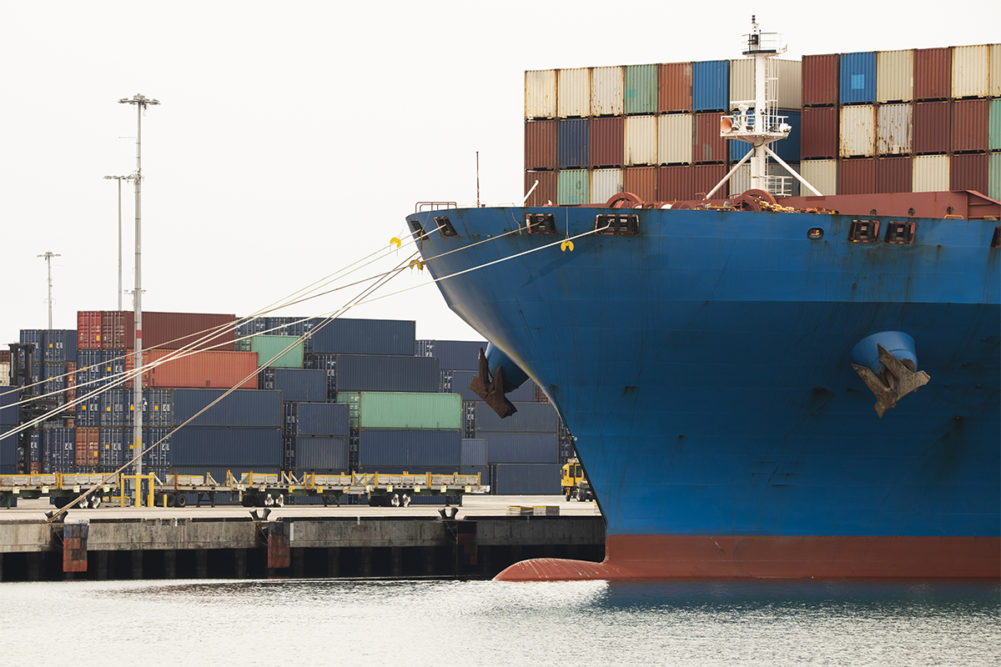WASHINGTON — Mike Durkin, president and chief executive officer, Leprino Foods Co., Denver, Colo., before a Nov. 3 hearing of the House Committee on Agriculture on the immediate challenges to the nation’s food supply chain, addressed an issue sometimes lost in the discussion about bottlenecks at the nation’s ports — agricultural exports.
Mr. Durkin told the committee Leprino Foods is the largest purchaser of milk in the United States supporting more than 1,000 dairy farms. The company is the world’s largest producer of mozzarella cheese and is a leading supplier of dairy nutrition products, including lactose and whey.
Mr. Durkin said Leprino Foods exports 26% of its milk equivalent volume to more than 55 countries, so exports are critical to the company’s bottom line.
“Freight rates from Asia to the US West Coast are currently 15 times higher than freight rates from the United States to Asia, so there is a clear financial incentive for ships to depart US ports empty — with no US goods on board — versus waiting to be loaded,” Mr. Durkin said. “As a result, shipping companies are refusing to load US agricultural exports, and over 70% of containers are returning to Asia empty.”
Mr. Durkin said this practice seems to be working well for ocean carriers but imposes a burden on agricultural exporters.
“We’ve been told it is more effective to skip the Port of Oakland, one of our primary export ports, than to accept exports,“ Mr. Durkin said.
“Here is what Leprino has been facing,” Mr. Durkin told committee members. “Over 99% of our 2021 ocean shipments have been canceled and re-booked for a later date at least once, if not twice, and in some cases up to 10 times or more. Over 100 bookings this year have been canceled and re-booked 17 times. This equates to a five-month delay for customers who depend on our products, including infant formula ingredients necessary to feed millions of babies around the world. We have been forced to hold loaded containers in carrier yards, using equipment already in short supply.”
Leprino Foods also has encountered unprecedented increases in freight, storage and demurrage fees, Mr. Durkin said.
“One freight bill of $5,472 was dwarfed by detention and demurrage fees of more than $20,000,” Mr. Durkin said. “In total, these costs have spiked $25 million in 2021, and we currently anticipate a similar $25-million impact in 2022.”
Mr. Durkin said while some believe the bottleneck issue at the ports will resolve itself, in the interim, irreparable harm may be done to American agriculture as customers around the world question whether the US dairy industry is a reliable supplier.
“For example, one of our biggest nutrition customers recently informed us they now source from Europe due to shipping delays,” Mr. Durkin said. “These relationships take years to develop and will not be quickly or easily regained, and the US dairy industry cannot stay competitive with expensive and unreliable freight practices in markets where we are already fighting for market share because of tariff disadvantages.”
Mr. Durkin pointed out the export challenges have ripple effects throughout the supply chain.
“The loss of foreign sales pushes more product onto the US market, which pressures wholesale product prices and ultimately farm milk prices,” Mr. Durkin said.
Mr. Durkin urged committee members to support the Ocean Shipping Reform Act of 2021, which would prohibit the carrier practice of sailing to Asia empty when US agricultural exports await shipment.
That bill, HR 4996, was introduced on Aug. 11 by Representative John Garamendi of California and has 68 cosponsors from both sides of the aisle. It was referred to the House Committee on Transportation and Infrastructure.
The bill would be a good start, but much more action will be needed, Mr. Durkin said.
“For example, most major ports around the world routinely operate 24/7,” Mr. Durkin said. “Only recently did the Administration and certain US ports agree to begin doing so temporarily.”
Mr. Durkin was referring to President Joe Biden’s Oct. 13 meeting with officials from the Ports of Long Angeles and Long Beach, Calif., as well as of the International Longshore and Warehouse Union to discuss actions they were going to take to address the port bottleneck in southern California.
At the meeting, the Port of Los Angeles pledged to join the Port of Long Beach in expanding operations by increasing off-peak nighttime shifts and weekend hours to help speed ship unloading. The longshoreman’s union said its members were willing to work those extra shifts.
“Given labor shortages and required training, however, this action is unlikely to provide any relief for at least six months,” Mr. Durkin cautioned. “In addition to prohibiting foreign carriers from leaving the United States empty, the Administration and Congress must work together to provide all our major ports and port workers with the infrastructure and environment to operate and meet demand.”






